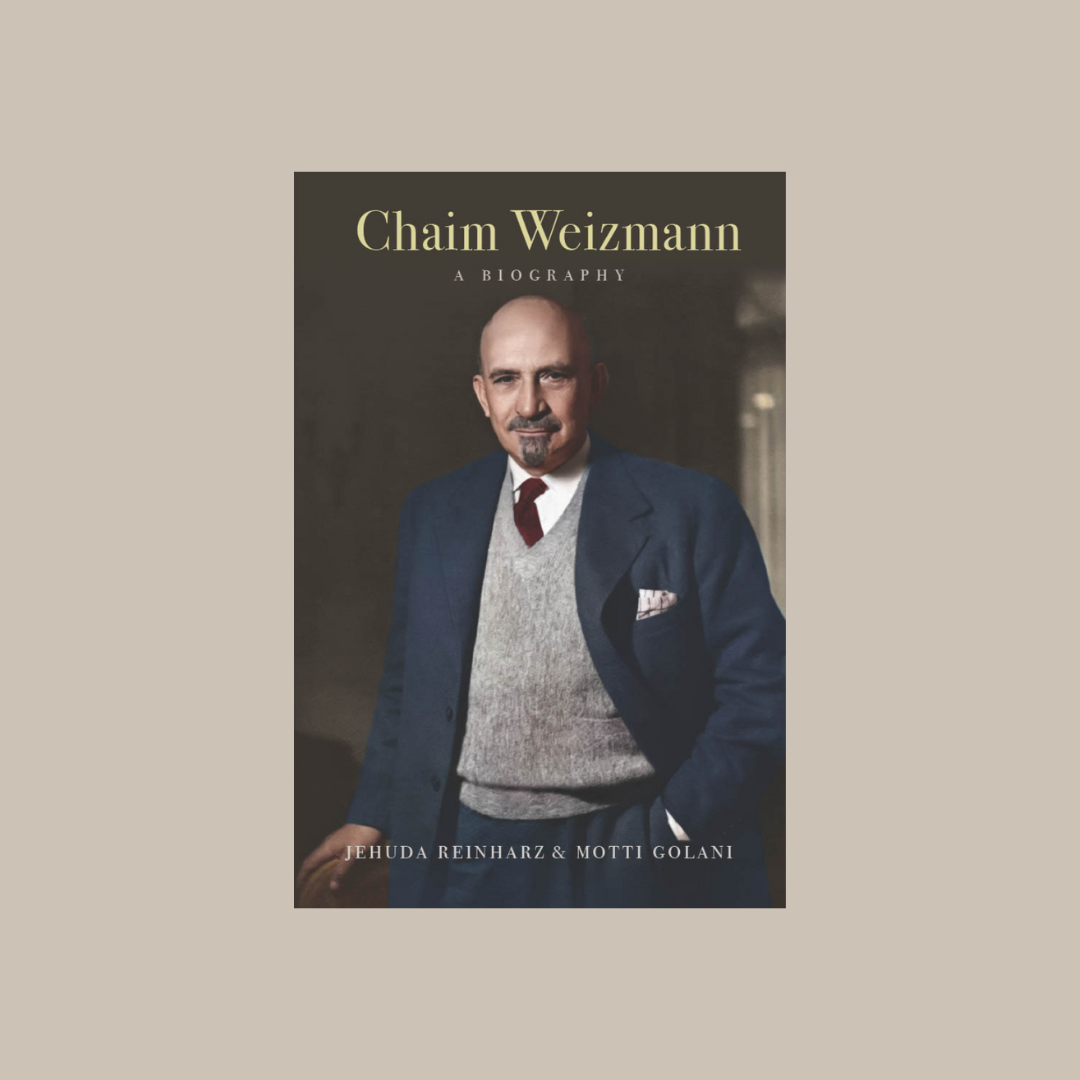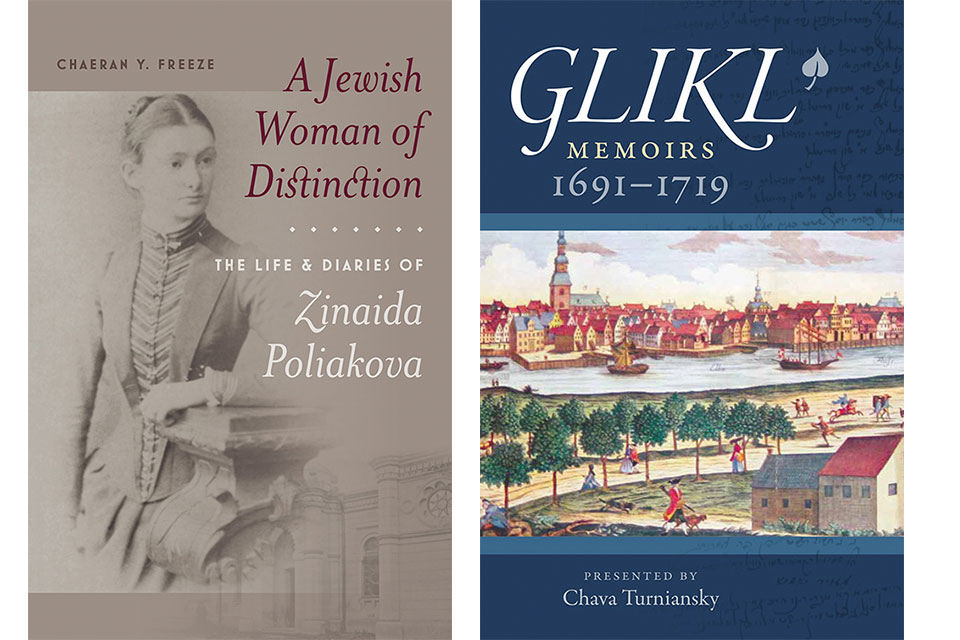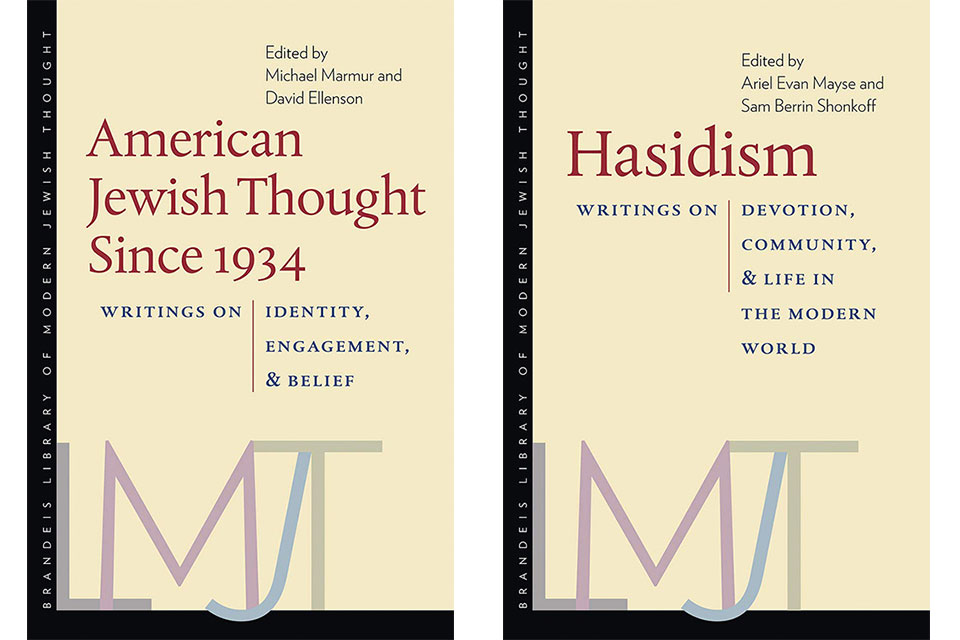
Chaim Weizmann: A Biography
The complete and definitive biography now available through Brandeis University Press.

The complete and definitive biography now available through Brandeis University Press.

This year at the Annual Simon Rawidowicz Lecture, the Tauber Institute honored our past lecture speakers in the form of a slideshow presented at Susannah Heschel's lecture on April 4, 2024.

The Tauber Institute is devoted to the study of modern European Jewish history, thought, culture and society.

"Antisemitism and the Politics of History" edited by Scott Ury and Guy Miron and "Jewish Universalisms: Mendelssohn, Cohen, and Humanity's Highest Good" by Jeremy Fogel

The Tauber Institute Series is dedicated to publishing compelling and innovative approaches to the study of modern European Jewish history, thought, culture and society.

This library aims to redefine the canon of modern Jewish thought by publishing primary source readings from individual Jewish thinkers or groups of thinkers in reliable English translations.
The Tauber Institute is devoted to the study of modern European Jewish history, thought, culture and society. It has a special interest in studying the Holocaust and its aftermath within the context of modern European intellectual, political and social history.
The institute is organized on a multidisciplinary basis with the participation of scholars in Jewish studies, history, philosophy, political science, sociology, literature and other disciplines. The institute was founded in 1980 as a result of a major benefaction by Dr. Laszlo N. Tauber and is named in honor of his parents.
The Tauber Institute is pleased to announce the Spring 2025 classes taught by our esteemed faculty associates:
Jonathan Decter
Religions of Abraham: Judaism, Christianity, Islam (NEJS 3A)
An introduction to the three major religions originating in the Near East: Judaism, Christianity, and Islam. Areas of focus include historical development, sacred texts, rituals, and interpretive traditions.
ChaeRan Freeze
Carnal Israel: Exploring Jewish Sexuality from Talmudic Times to the Present (NEJS 166A)
Explores the construction of Jewish sexuality from Talmudic times to the present. Themes include rabbinic views of sex, niddah, illicit relations, masculinity, medieval erotic poetry, Ashkenazi and Sephardic sexual practices, and sexual symbolism in mystic literature; the discourse on sex, race, and nationalism in Europe; debates about masculinity, sexual orientation, and stereotypes in America and Israel.
Eugene Sheppard
Power and Powerlessness in Jewish History (NEJS 119B)
Examines the political relationship between Jewish communities and the states and empires within which they lived from the ancient to the modern world. What forms of Jewish political power are considered legitimate and desirable? What political strategies have Jewish groups and communities pursued as they sought to assert themselves when Jewish sovereignty was absent or limited? How did these strategies change over time and how did the convulsions of the modernity alter the Jewish approaches politics? How did Jews understand and respond to the rise of national socialism, the Holocaust, the establishment of the Jewish state of Israel, the Cold War? How have recent debates about Jewish reactions to criticisms of Israel and Zionism in the wake of the war with Hamas in Gaza relate to these earlier phenomena?